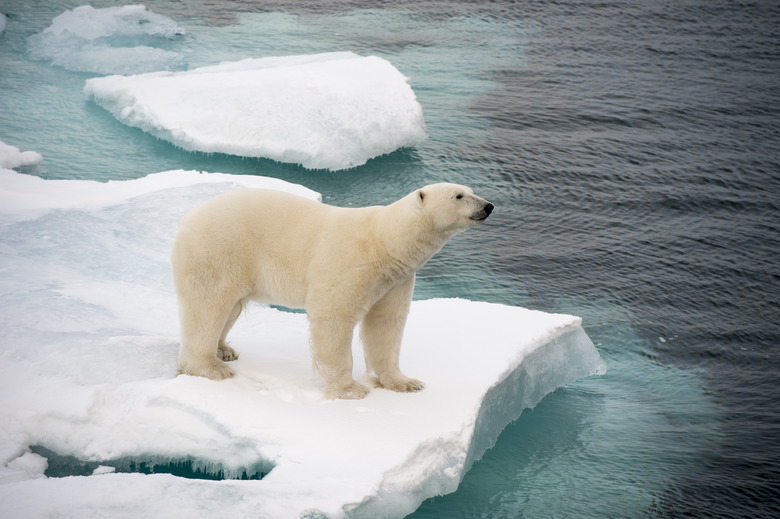How Does Climate Change Affect Biodiversity?
As climate change alters temperature and weather patterns, it will also impact plant and animal life. Scientists expect the number and range of species, which define biodiversity, will decline greatly as temperatures continue to rise. The loss of biodiversity could have many negative impacts on the future of ecosystems and humanity worldwide.
Climate Change's Impact on Environment
Climate Change's Impact on Environment
Greenhouse gases, such as carbon dioxide, absorb heat from sunlight, preventing it from escaping back into space. As the level of greenhouse gases rises, so will temperatures. The Intergovernmental Panel on Climate Change predicts that by 2100, temperatures may rise as much as 6 degrees Celsius (11 degrees Fahrenheit). Though the Earth's climate has changed in the past, the rapid severity of this change will directly affect ecosystems and biodiversity.
Effects on Land Biodiversity
Effects on Land Biodiversity
Rising temperatures already affect the world's polar regions. Diminishing ice packs reduce the habitats of polar bears, penguins, puffins, and other Arctic creatures. As the ice melts, it increases the sea level, which will affect and perhaps destroy ecosystems on coastlines. Changes in temperatures will also cause shifts in mating cycles, especially for migratory animals that rely on changing seasons to indicate their migration and reproductive timing.
Effects on Ocean Biodiversity
Effects on Ocean Biodiversity
Rising sea levels will also cause changes to ocean temperatures and perhaps even currents. Such changes would have a strong impact on zooplankton, an essential part of the food chain in the ocean. Shifts in where plankton live and how big the size of their populations could upset the biodiversity in the Earth's waters. Whales, especially, could bear the brunt of this, as many whale species require mass amounts of plankton to survive. In addition, increased carbon dioxide causes acidification of the ocean, affecting creatures and plants that are sensitive to pH imbalances.
Lack of Biodiversity
Lack of Biodiversity
As biodiversity decreases, there will be far-reaching effects. Disruptions in the food chain may greatly affect not only ecosystems but also humanity's ability to feed an ever-growing population. For example, losing diverse insect species will decrease plant pollination. Additionally, this may decrease humanity's ability to produce medicine, as extinction claims more and more key plant species. Biodiversity also protects against natural disasters, such as grasses that have evolved specifically to resist the spread of wildfires.
Cite This Article
MLA
Michelle, Meg. "How Does Climate Change Affect Biodiversity?" sciencing.com, https://www.sciencing.com/climate-change-affect-biodiversity-23158/. 19 April 2018.
APA
Michelle, Meg. (2018, April 19). How Does Climate Change Affect Biodiversity?. sciencing.com. Retrieved from https://www.sciencing.com/climate-change-affect-biodiversity-23158/
Chicago
Michelle, Meg. How Does Climate Change Affect Biodiversity? last modified March 24, 2022. https://www.sciencing.com/climate-change-affect-biodiversity-23158/
